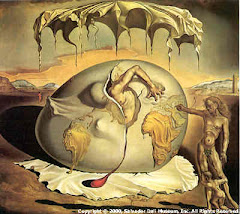Before moving on to refine and develop the theoretical framework that I have only sketched up to this point, I want to mention one other potentially interesting point about the theoretical significance of the VCP.
Thus far we have been looking at the VCP from the point of view of a moral agent who is a position to care for and protect others who are vulnerable and dependent upon them. In such cases, the VCP predicts that the more powerful agent(s) should acquire special moral responsibilities to protect the interests of the weaker and more vulnerable parties to the relationship, particularly when those vulnerable others cannot protect their own interests and are in some ways dependent on others for their care and protection. But what happens when we turn this situation around and look at the matter from the point of view of oneself being the vulnerable party?
In this case, the VCP prescribes that one should regard oneself as entitled to certain kinds of care and protection from others. If one finds oneself in a position of relative vulnerability and dependence, then according to the VCP, one has a moral claim to the care and protection of others. In some cases, these sorts of claims can be addressed to specific others who are in special relationships with oneself, such as ones parents, doctors, teachers, and so forth, while in other cases the moral claims generated by the VCP can be addressed to society at large. If I am specially vulnerable and am depending on others, then I can claim that society has a responsibility to organize some form of care and protection that benefits me.
This insight I believe, suggest a way in which rights can arise from responsibilities. Rights are, at least in part, moral claims that persons advance against other members of society that invoke the responsibility to protect and care for vulnerable others. Thinking that the moral responsibility to protect the vulnerable precedes the existence of a right to claim social protection against some standard threats to ones liberty or well-being, then, offers an explanation for human rights that does not rely on either God or nature nor merely on social conventions. Rights, on this view, derive from the moral responsibility to protect the vulnerable.
If there is a fundamental moral responsibility to protect vulnerable members of one's moral community, then the right to be protected and to claim protection as one's moral right is logically prior to the existence of any social contract among members of society which serves to legitimize these moral relationships. There do indeed come to be moral and legal conventions that we agree upon that recognize specific rights and responsibilities, but from the perspective of the ethics of responsibility, rights derive from considerations of relative power and vulnerability. This turns on its head the standard view of rights in which rights are regarded as theoretically fundamental and are seen as providing the moral and/or legal basis for various kinds of social responsibilities.
The idea that a having a right gives its holder the moral basis to make a claim to social protection against certain kinds of threats can then be seen as the flipside of the social responsibility to protect the vulnerable. In cases in which the right-holder is vulnerable to harm and is depending on other members of society to come to his aid when he is under various kinds of threat, the VCP predicts that other members of his moral community have a standing moral responsibility to protect him. If there is such a standing moral responsibility to protect the vulnerable members of the moral community, particularly when their survival, well-being or freedom is threatened in a serious way, then when I am threatened I can claim social protection. So my right to social protection derives from the social responsibility to protect the vulnerable borne by other members of my moral community.
The human rights violations and abuses that are considered to be 'standard threats' to human freedom and well-being represent lessons learned from historical experiences of oppression in which large numbers of persons have in fact been deprived of these goods and few if any other members of society attempted to protect them. Vulnerability to human rights abuses must then be understood in a particular rather than in a general and abstract sense to refer to specific kinds of harms that persons have been subjected to in our historical experience, for instance, the threat of arbitrary arrest and imprisonment, the threat of torture, the threat of religious persecution, the threat of economic deprivation, the threat of disenfranchisement, and so forth.
Human rights are designed to afford individuals some degree of social protection against these specific kinds of standard threats, particularly when the threats originate because of acts or omissions by governments. But rights are effective normative instruments only to the extent that other members of society respond to the moral claims made in their name. It is the regularity and reliability of the social response to the moral and legal claims that rights provide that determines whether or not human rights are operative or only aspirational.
In other words, without a set of institutions that discharges the social responsibility to protect the vulnerable, human rights provide only the moral basis for claims to social protection, not the protection itself. A menu is not the same thing as a meal. Which is why the most important challenge for the global human rights movement in the twenty-first century is to create and support rights-implementing institutions and thereby make human rights operational for all the people of the earth. In order for this to happen, more people must be made aware of their social responsibilities to protect others against human rights violations and abuses.
Subscribe to:
Post Comments (Atom)





No comments:
Post a Comment